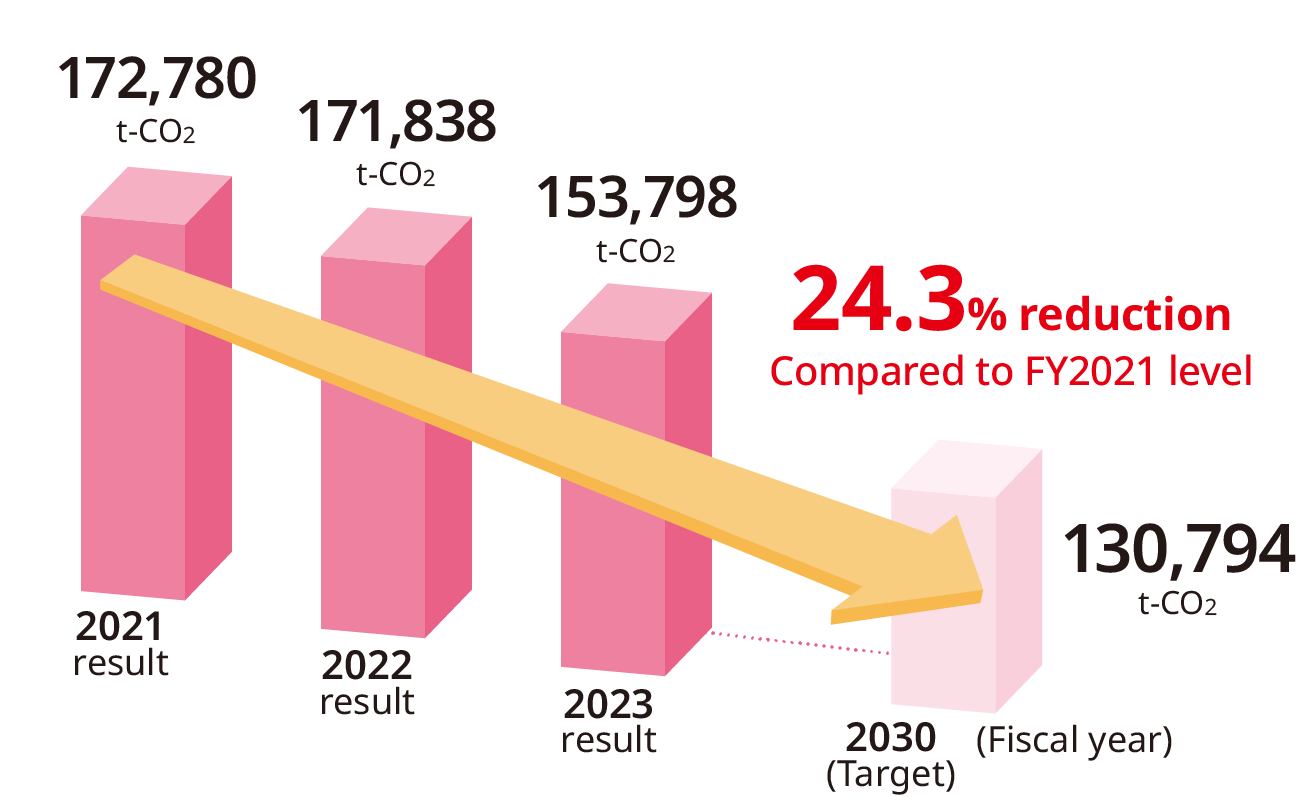Reducing greenhouse gas emissions is one of our material issues. In fiscal 2022, the Board of Directors set a goal for fiscal 2030: reducing greenhouse gas emissions from fossil fuel combustion in Japan by 24.3% from the fiscal 2021 level.*
In fiscal 2023, we invested in projects such as expanded procurement of renewable energy and phasing out fluorinated refrigerants. As a result of this investment, GHG emissions was down 10.5% from the previous year’s level. We also calculated and disclosed our scope 3 emissions on a non-consolidated basis.
In fiscal 2024, Prima Meat Packers’ plant in Ibaraki shifted the entirety of its electricity purchases to renewable sources. This transition is being rolled out across other major production sites too. We will keep combating climate change across the whole value chain and working toward our 2030 targets.
- *Excludes emissions from overseas sources and from livestock.
- *The 24.3% reduction (compared to the fiscal 2021 level) was determined by annualizing the Japanese government’s 2030 target of 46% reduction from the fiscal 2013 level.
Reduction target for GHG emissions at scopes 1 and 2 (excluding emissions from overseas sources and from livestock)
